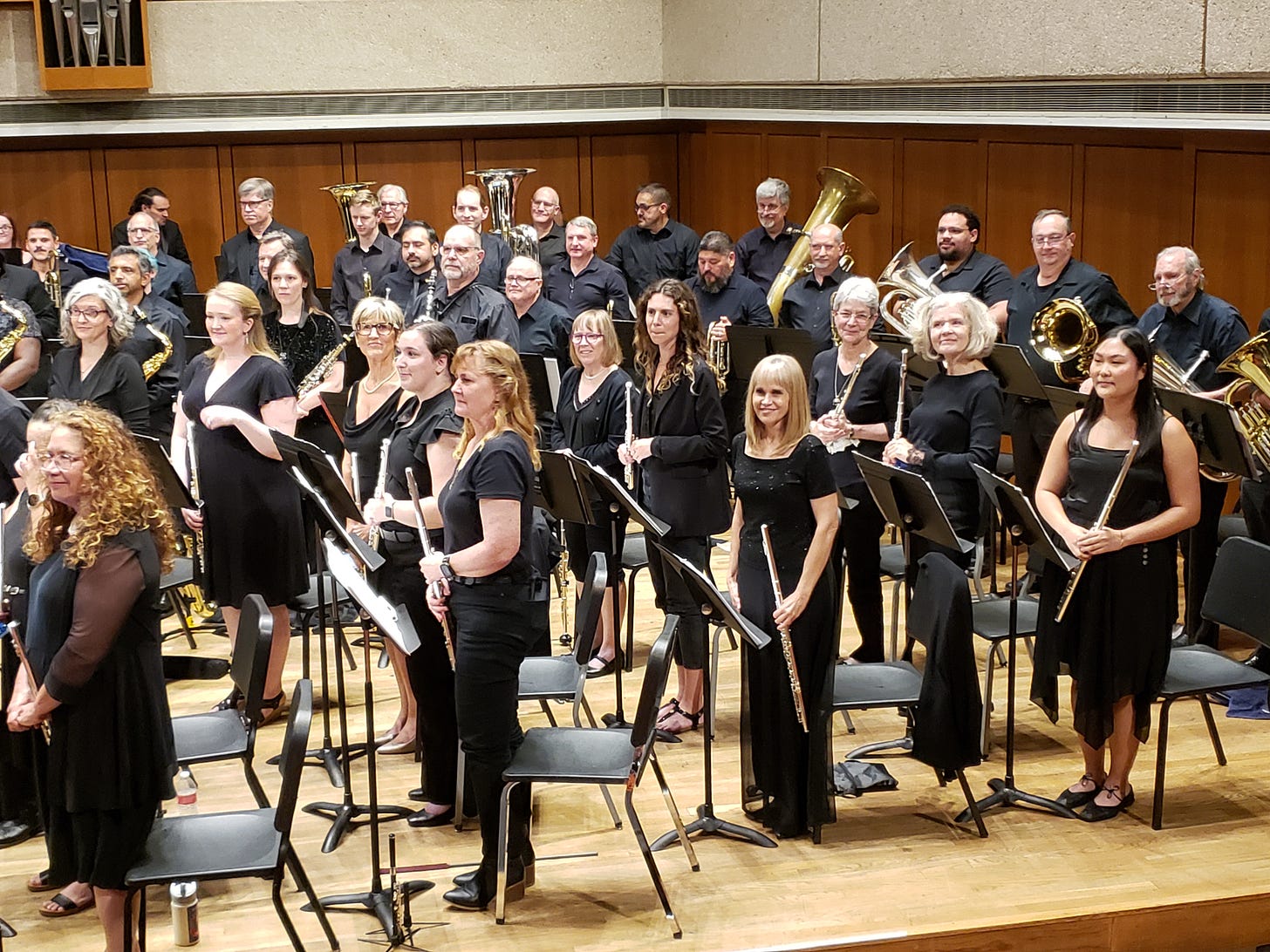Several years ago, my boyfriend Stephen decided that he was going to surprise me by learning to play Beethoven’s “Fur Elise” on the piano. The only problem was that he hadn’t played piano since he was a child, and, even then, he’d only taken lessons for a few years. No one would have called him a “musician” at that point, even if they were being incredibly generous with the term.
It took several weeks, but one day, Stephen did play “Fur Elise” for me. I was shocked! At the time, I didn’t know that he had even taken piano lessons. I couldn’t imagine how he had learned to play such a complex song in such a short time.
In contrast, I had tried to learn to play the piano on several occasions and, to this day, I can’t play even a simple song. Most of my life I’ve had access to a piano, so I had ample opportunity to practice. But my practicing didn’t reap the rewards I’d hoped.
My most successful effort occurred when I was in my late 40’s and I learned a dumbed-down version of Gershwin’s “But Not For Me.” I played it in a small recital, but after that performance, I never practiced piano faithfully again.
Stephen continued on his piano journey, this time tackling the much more difficult piece “Moonlight Sonata.” When I questioned him about his learning methodology, there was nothing particularly stunning about it.
He practiced meticulously, he told me, sometimes spending copious amounts of time on just one or two measures. He listened to professionals play the piece to ensure he was playing it properly (and for inspiration). He practiced so much that, by the time he learned “Moonlight Sonata,” he could play it from memory.
Stephen’s success confounded me. I had much more musical knowledge and experience than he did. I’d spent my life singing in groups and as a soloist. I’d played around with not only piano, but also clarinet, flute, and baritone horn. With all of my musical experience, I didn’t understand why I had never reached the same level of proficiency on the piano as Stephen had.
The contrast between my “failure” and Stephen’s success didn’t come down to just one thing, but when I analyzed what he was doing vs. what I was doing, I noticed something peculiar: Stephen didn’t get upset when he didn’t play every note and rhythm exactly right.
My ear could hear the imperfections in Stephen’s performances. My perfectionist mind was used to seeking out mistakes because that’s what it did every time I attempted to play the piano. But Stephen’s mind didn’t focus on the mistakes. It focused on making music.
I had to admit that Stephen was on to something. His playing had heart. It moved me. Yes, I heard the errors. But they didn’t matter as much as I thought they should. Most of all, I had to admit that his progress was stunning compared to mine. I knew I had a lesson to learn that didn’t involve placing my fingers on any piano keys.
I decided to see what would happen if I allowed myself to make mistakes. At the time, I had just begun playing flute again. I began noticing my self-talk when I practiced. I was surprised by what I heard. The voice in my head was brutal!
Most of the time, that voice in my head wouldn’t allow me to simply make music. It was so critical that every mistake seemed as if it would bring certain death. The more the voice yelled at me for making mistakes, the more mistakes I made. I stopped practicing when I became emotionally spent from listening to the endless criticism in my own head.
After I observed this pattern for a while, I could see what had tripped me up for so long. That voice in my head was so critical that I was afraid to make ANY mistakes. But in making progress, mistakes are inevitable. If I wouldn’t allow myself to make mistakes, how could I make progress?
In my pursuit of instrumental music, a significant turning point occurred in January of 2024 when I joined a wind ensemble (the Austin Civic Wind Ensemble aka ACWE) and began playing flute with them. The music was well beyond my capabilities at the time, so each week I spent more time listening to everyone else play than I did playing any notes myself.
Week after week, I attended rehearsals but couldn’t play most of the pieces. My practice at home only served to solidify how out of my league I was. No amount of practicing could get me up to the skill level of the other players before the end of the season. I knew that it would take years — or decades — to be playing at a level anywhere close to the others.
In other words, I watched myself “fail” every time I attended rehearsal. I failed every time I practiced. I failed at playing high notes. I failed at playing fast passages. I failed at playing rhythms correctly. Sometimes I even failed to get a pleasant sound out of my flute.
For a perfectionist like myself, sticking with ACWE was a very difficult journey. During those first few months, that voice in my head told me what a loser I was for all of my failures. It persisted to tell me that I would never be a competent flutist. It even told me that I should give up now rather than keep trying and allow that voice to be proven correct.
Talking to the voice logically (e.g. “Making mistakes is critical for learning”) didn’t seem to help. The voice had all sorts of awful things to say about me. Eventually what I had to do was tell the voice — and not in a nice way — to JUST SHUT UP! ;)
By the time I played my first major concert with ACWE, I was quite comfortable with what I couldn’t do. Unlike previously, however, I did not focus on what I couldn’t do. I focused instead on what I could play and on my overall growth as a musician during that time.

It’s been more than a year since I stopped listening to my inner musical critic. That’s not a long time, but it’s been long enough for me to see how quickly I made progress once I decided that mistakes are not just OK, but that they are actually part of the process of becoming a more proficient musician.
Do you consider yourself to be a perfectionist? How does that aspect of yourself prevent you from achieving your goals?
On the surface, striving for perfection seems like it would bring great rewards. But perfectionism prevents us from experiencing the failures that help us to grow. The problem with perfectionism is that you can’t make progress without making errors.
Mistakes and “failure” are a part of any endeavor in which we find ourselves needing improvement. If you also have a loud inner critic who berates you for making mistakes, I’d suggest you do what I did: Make your outer voice even louder and tell that critic to shut up so you can make the mistakes that will lead you to success.







Powerful real life account of how our inner Judge can create a self fulfilling prophecy only if we allow it. You tell us a beautiful narrative on how we all have that inner critic & once you notice it and bring to light it loses it's power.